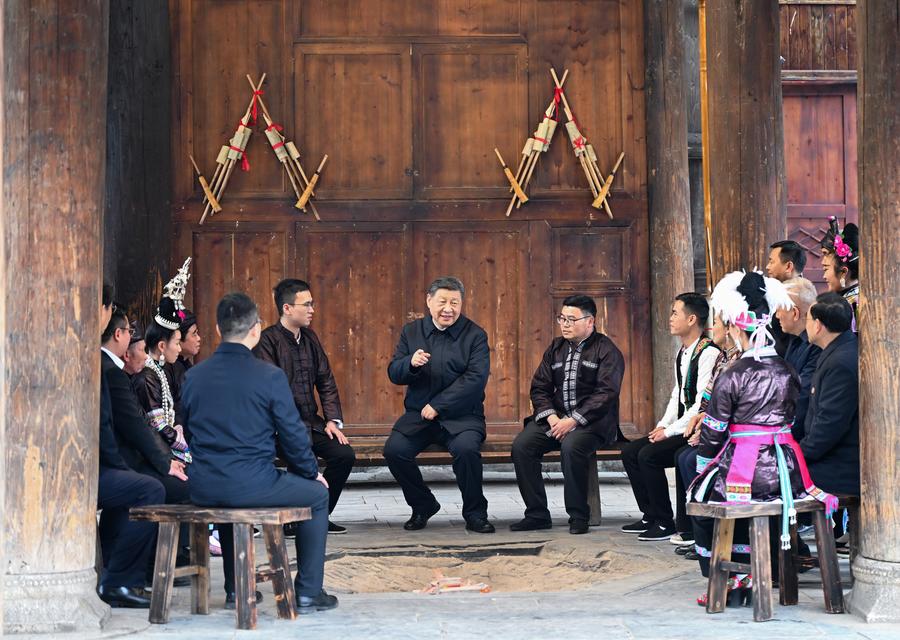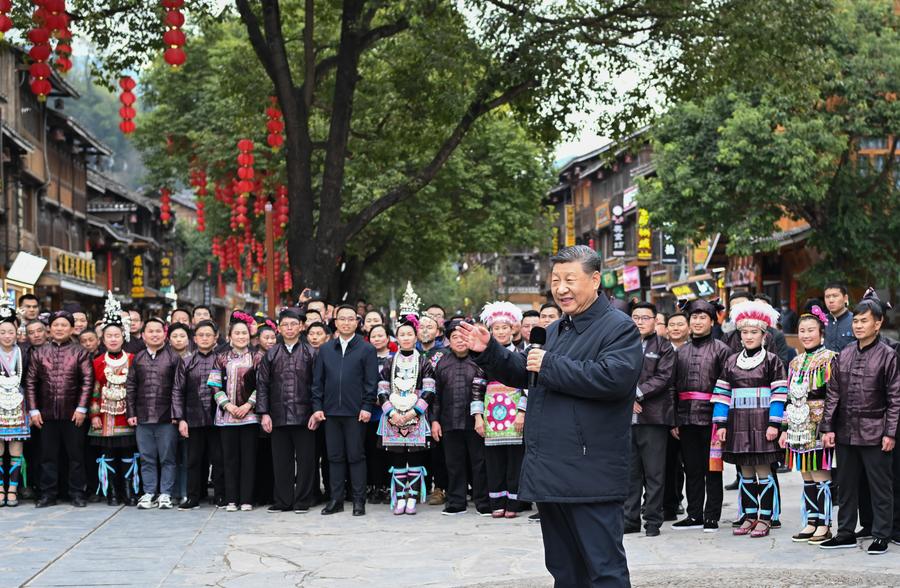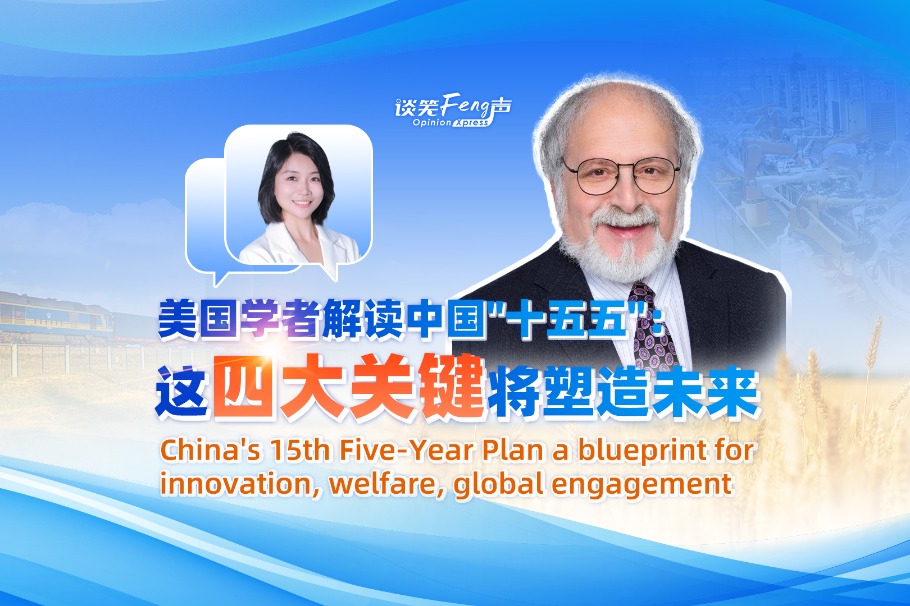People-centered outlook applauded
Experts: Nations can learn from Chinese governance in pursuing modernization


Across continents and decades — from a primary school yard in Mali to a university classroom in China — Yoro Diallo's life has been guided by one enduring belief: "As long as you understand China, you will love China."
For Diallo, that understanding runs deep. It is rooted in childhood memories of China's aid in his hometown in the West African nation, and nurtured through years of working and living in China.
"My father was the principal of a China-built school and taught me Chinese songs when I was little, and my mother used to receive treatment from a Chinese medical team, so China has left me with a deep and beautiful impression when I was a kid," he recalled. "And now I am honored to be able to work in China as an adult."
The 72-year-old arrived in China in 2013 as a diplomat working for the Malian embassy in Beijing. Four years later, he joined Zhejiang Normal University in East China's Zhejiang province.
"What I've learned here is the fighting spirit — working hard to make life better for people and to realize their aspirations," the 2024 Chinese Government Friendship Award recipient said.
He said he believes that the key to understanding this bond lies in leadership. And that is why over the years, he has studied Xi Jinping: The Governance of China — now a five-volume collection — along with numerous speeches by the Chinese leader, which he says offer profound insights into China's approach to development and governance.

Since the publication of the first volume in 2014, Xi Jinping: The Governance of China has grown into five volumes, and has been translated into more than 40 languages and distributed in over 180 countries and regions. The fifth volume was officially released in July in both Chinese and English editions.
"I discovered the spirit of a leader who focuses on realizing the aspirations of the people," Diallo said.
"The essence of Chinese governance is sharing — sharing development opportunities with Africa and with the world. Working hand in hand with Africa to build a shared future is exactly what Africans are looking for."
Diallo has traveled extensively across China, visiting many rural areas, enterprises, schools and local governments.
These experiences have given him a deeper understanding of "the pursuit of the Communist Party of China to uphold the people first and mind the world", Diallo said.
His ideas are shared by many other international scholars and policymakers who have studied Xi's governance philosophy in a bid to gain a better understanding of China.
Julius Ihonvbere, majority leader of Nigeria's House of Representatives, said President Xi has "laid out for the world a new path to think differently and to perceive people and cultures differently", describing his leadership philosophy as "a great service to humanity".
Ihonvbere spoke highly of China's long-term planning mechanisms, saying that China has shown the ability to plan for the future while promoting innovation, environmental protection and technological growth.
The recommendations of China's top leadership for formulating the country's 15th Five-Year Plan (2026-30) "will have a direct impact on the economies of the world, particularly in Africa, where we have natural resources and young people who are trying to get to know the world", Ihonvbere added.
Chakil Aboobacar, secretary-general of Mozambique's Frelimo Party, said he found Xi Jinping: The Governance of China "deeply relevant" to his country's own development path.
"President Xi's view that people are the driving force behind social, cultural and economic transformation is deeply inspiring," he said.
Aboobacar noted that the forthcoming 15th Five-Year Plan (2026-30) stands out for its strategic vision.
"The plan remains focused on empowering people — creating opportunities for them to become active participants in innovation and drivers of social and economic development. It's a philosophy that Africa can learn from as we pursue our own path to modernization," he said.
Carlos Ominami, Chile's former minister of the economy, lauded President Xi for offering a "clear and pragmatic vision" for improving global cooperation in a time of turbulence, saying that Xi's proposals are highly detailed and have a profound effect.
Following the Global Development Initiative, Global Security Initiative and Global Civilization Initiative, Xi has proposed the Global Governance Initiative, which highlights the building of a more just and equitable global governance system.
Through Xi's leadership, "China is playing a very active role in defending multilateralism, free trade and the reform of the World Trade Organization", he said, calling this "especially important to counter the unilateralism and protectionism being deployed by the United States government".
Luis Antonio Paulino, a professor of international relations at Sao Paulo State University in Brazil, said that the fifth volume of Xi Jinping: The Governance of China reflects "a clear effort to make global governance more inclusive and representative", while showcasing China's poverty-reduction experience as "an alternative model for developing nations".
He cited Xi's people-centered approach — "ensuring that no region or person is left behind" — and policies tailored "by village, household and individual", combining economic growth with technology and financing to create sustainable results.
"The core message," Paulino said, "is that China has succeeded — and other countries can as well. The collective rise of the Global South is a precedent achievement in human civilization."
Contact the writers at zhaojia@chinadaily.com.cn
























